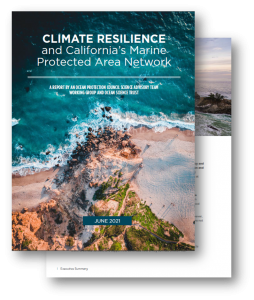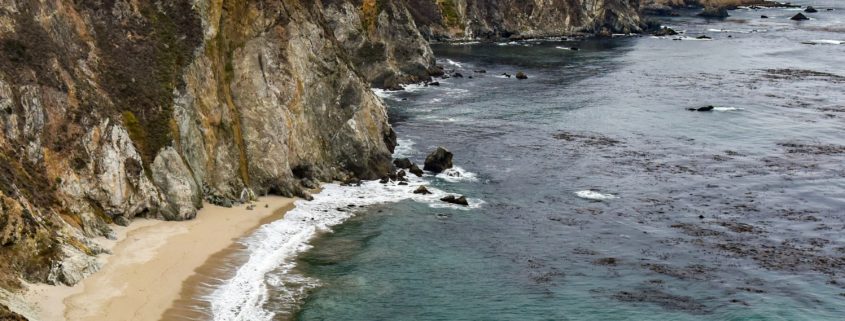
“Climate Resilience and California’s Marine Protected Area Network: A Report by an Ocean Protection Council Science Advisory Team Working Group and Ocean Science Trust (June 2021)”
In this report, the working group provides an overview of climate change impacts and scenarios for the California Current, catalogs potential mechanisms and evidence by which MPAs could provide resilience to climate change (and weighs the evidence for and against each), suggests research that could guide our detection and understanding of climate resilience in California’s MPAs, and recommends a set of actions to support a climate-resilient MPA network.





